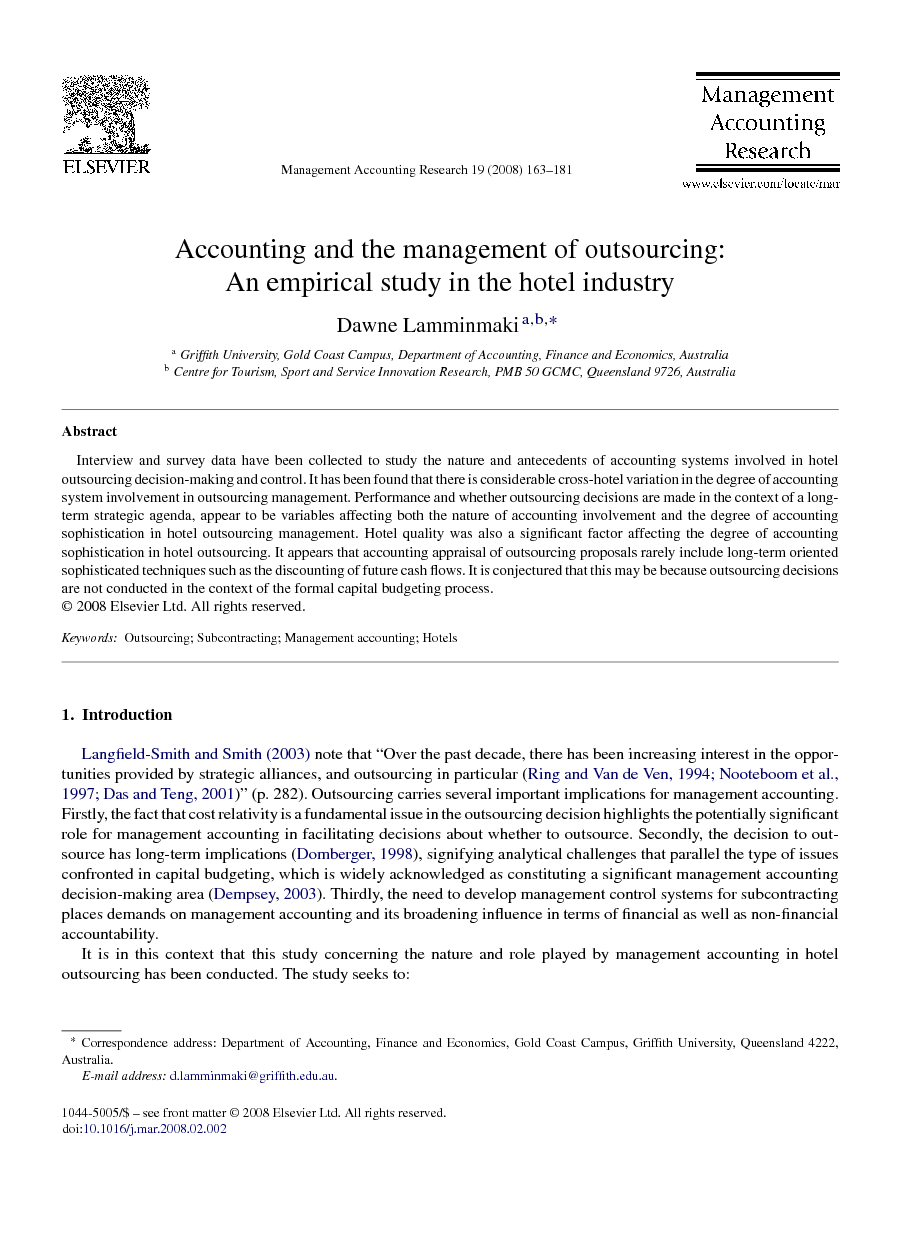ترجمه فارسی عنوان مقاله
حسابداری و مدیریت برون سپاری : مطالعه تجربی در صنعت هتلداری
عنوان انگلیسی
Accounting and the management of outsourcing: An empirical study in the hotel industry
| کد مقاله | سال انتشار | تعداد صفحات مقاله انگلیسی |
|---|---|---|
| 548 | 2008 | 19 صفحه PDF |
منبع

Publisher : Elsevier - Science Direct (الزویر - ساینس دایرکت)
Journal : Management Accounting Research, Volume 19, Issue 2, June 2008, Pages 163–181
ترجمه کلمات کلیدی
هتل ها - حسابداری مدیریتبرون سپاری - قرارداد فرعی -
کلمات کلیدی انگلیسی
Outsourcing,
Subcontracting,
Management accounting,Hotels,

